News
In The Studio With: Juju & Jordash
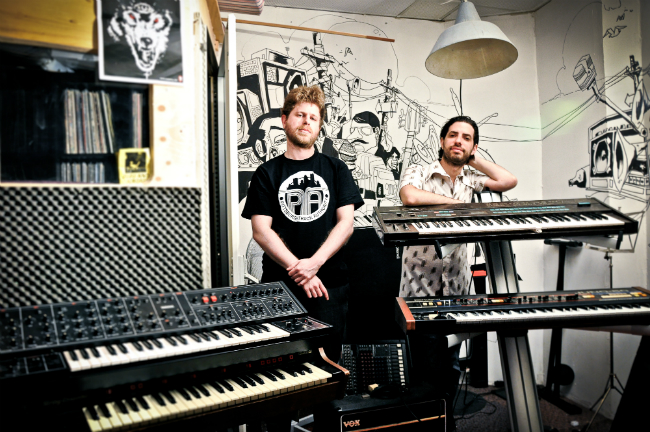 Now located in Amsterdam, Juju & Jordash otherwise known as Jordan Czamanski and Gal Aner, are Israel born studio partners who are drawn towards creating tripped out and psychedelic electronic music by the way of analogue machines. To date they’ve released three albums and a swathe of 12”s with collaborations along the way from likeminded producers who like to loop their way into mechanic oblivion; people like Morphosis and Vakula and most recently and notably, Move D, naming their three way collaboration, Magic Mountain High.
Aside from the discussions about what is superior when it comes to producing with the aid of computers and machines (it’s what you do with it that counts, right?) there’s certain qualities that can only be gained through extended jam sessions but it’s these surreptitious, hands on happenings that form the basis of tracks with Juju & Jordash. Read on and to gain further insight into the processes and the machines in question that are used by the production pairing in our interview, which is guided further by some excellent visual accompaniments provided by their photographer friend Carolina Georgatou.
Firstly thank you so much for taking these photos, they’re really great. Where is your studio exactly?
Gal: Our studio is in Amsterdam, in a building called the Volkskrantgebouw. It used to be a pressing plant of one of the Netherlands's biggest newspapers and today it's host to a load of studios instead.
Jordan: Yeah - great photos! They were taken by Carolina Georgatou - so it’s all her!
How important is it for you to have this space that’s 100% music production dedicated to go and work?
Gal: Very...it's great to have a place where you can work and make noise around the clock, and have a separation from your living space.
Jordan: And there are a bunch of cool producers in the building with some great gear I plan to borrow (wink wink Trago.)
Now located in Amsterdam, Juju & Jordash otherwise known as Jordan Czamanski and Gal Aner, are Israel born studio partners who are drawn towards creating tripped out and psychedelic electronic music by the way of analogue machines. To date they’ve released three albums and a swathe of 12”s with collaborations along the way from likeminded producers who like to loop their way into mechanic oblivion; people like Morphosis and Vakula and most recently and notably, Move D, naming their three way collaboration, Magic Mountain High.
Aside from the discussions about what is superior when it comes to producing with the aid of computers and machines (it’s what you do with it that counts, right?) there’s certain qualities that can only be gained through extended jam sessions but it’s these surreptitious, hands on happenings that form the basis of tracks with Juju & Jordash. Read on and to gain further insight into the processes and the machines in question that are used by the production pairing in our interview, which is guided further by some excellent visual accompaniments provided by their photographer friend Carolina Georgatou.
Firstly thank you so much for taking these photos, they’re really great. Where is your studio exactly?
Gal: Our studio is in Amsterdam, in a building called the Volkskrantgebouw. It used to be a pressing plant of one of the Netherlands's biggest newspapers and today it's host to a load of studios instead.
Jordan: Yeah - great photos! They were taken by Carolina Georgatou - so it’s all her!
How important is it for you to have this space that’s 100% music production dedicated to go and work?
Gal: Very...it's great to have a place where you can work and make noise around the clock, and have a separation from your living space.
Jordan: And there are a bunch of cool producers in the building with some great gear I plan to borrow (wink wink Trago.)
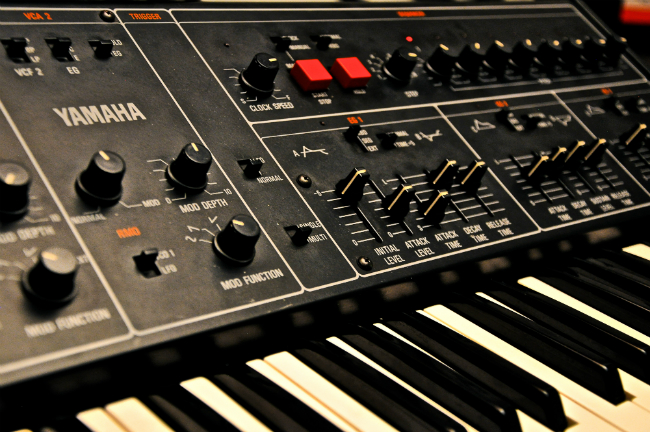
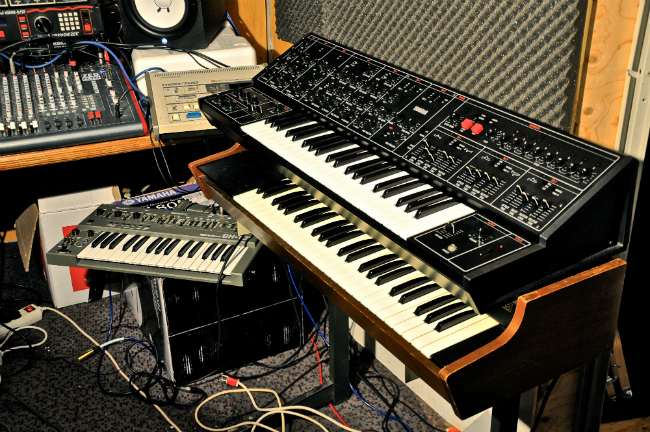 Is this where you’ve been working on your Magic Mountain High project with Move D? Can you tell us a bit about what it’s been like working
with him?
Gal: Some of the Magic Mountain High tunes were mixed in our studio, but almost all of the material was recorded in Move D's studio. We went there a few times and recorded a lot of music together. Working with him is really great. Aside from the fact that his studio is awesome, I think that we are musically more or less on the same wavelength and we can learn a lot from him, so it is a truly fun process. We try to work in the studio as close as possible to the way we play together on stage: long spontaneous jamming with a lot of gear...
Can you talk us through about your normal production process?
Gal: A lot of the time we just come to the studio, connect the synths, drum machines and effects we want to use that day and start jamming, after we have a basic cool sound. We've been doing it long enough to know there will always be some good stuff we can use. We multitrack everything and always have the freedom to edit it down later, selecting the best parts from long jams. Other times one of us comes with a basic idea like a beat or a sound and we build the rest around it.
Is this where you’ve been working on your Magic Mountain High project with Move D? Can you tell us a bit about what it’s been like working
with him?
Gal: Some of the Magic Mountain High tunes were mixed in our studio, but almost all of the material was recorded in Move D's studio. We went there a few times and recorded a lot of music together. Working with him is really great. Aside from the fact that his studio is awesome, I think that we are musically more or less on the same wavelength and we can learn a lot from him, so it is a truly fun process. We try to work in the studio as close as possible to the way we play together on stage: long spontaneous jamming with a lot of gear...
Can you talk us through about your normal production process?
Gal: A lot of the time we just come to the studio, connect the synths, drum machines and effects we want to use that day and start jamming, after we have a basic cool sound. We've been doing it long enough to know there will always be some good stuff we can use. We multitrack everything and always have the freedom to edit it down later, selecting the best parts from long jams. Other times one of us comes with a basic idea like a beat or a sound and we build the rest around it.
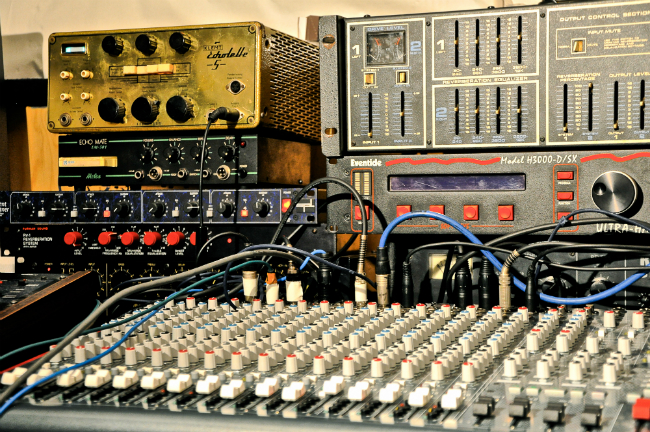
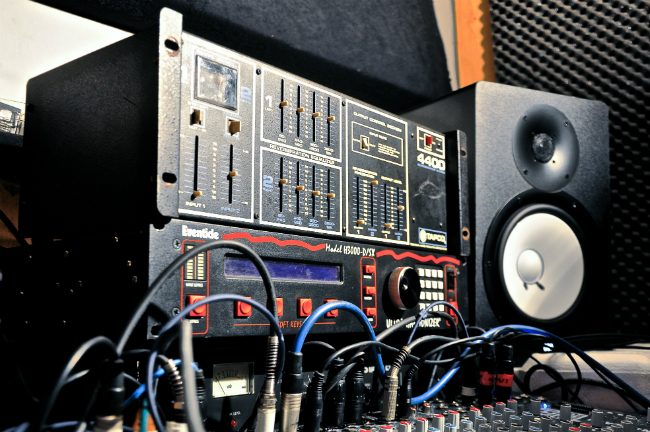 Having a look at what is there you really noticed that I can't see a computer anywhere – why is this?
Gal: Our mixer (Alan and Heath Z R16) has a firewire card built-in, so we do connect it to a computer, and use the computer mainly as a multitrack recorder and an editing station. But we don't really use the computer as a sound generating device, nor look at the screen while playing or recording. The more "hands on" approach, using outboard, works better for us, both sound wise and technically. Knobs and sliders are just way more fun anyway.
Can you tell us about about your choice of studio monitors?
Jordan: Yamaha HS80s (no sub), laptop speakers, and Beyer Dynamic DT770 pros. We have a tendency (more accurately, I do!) to make muddy stoned mixes and through a painful learning process that if it sounds good on the Yamahas and I can manage to hear clear separation on the laptop speakers, it will sound good on a proper rig.
Having a look at what is there you really noticed that I can't see a computer anywhere – why is this?
Gal: Our mixer (Alan and Heath Z R16) has a firewire card built-in, so we do connect it to a computer, and use the computer mainly as a multitrack recorder and an editing station. But we don't really use the computer as a sound generating device, nor look at the screen while playing or recording. The more "hands on" approach, using outboard, works better for us, both sound wise and technically. Knobs and sliders are just way more fun anyway.
Can you tell us about about your choice of studio monitors?
Jordan: Yamaha HS80s (no sub), laptop speakers, and Beyer Dynamic DT770 pros. We have a tendency (more accurately, I do!) to make muddy stoned mixes and through a painful learning process that if it sounds good on the Yamahas and I can manage to hear clear separation on the laptop speakers, it will sound good on a proper rig.
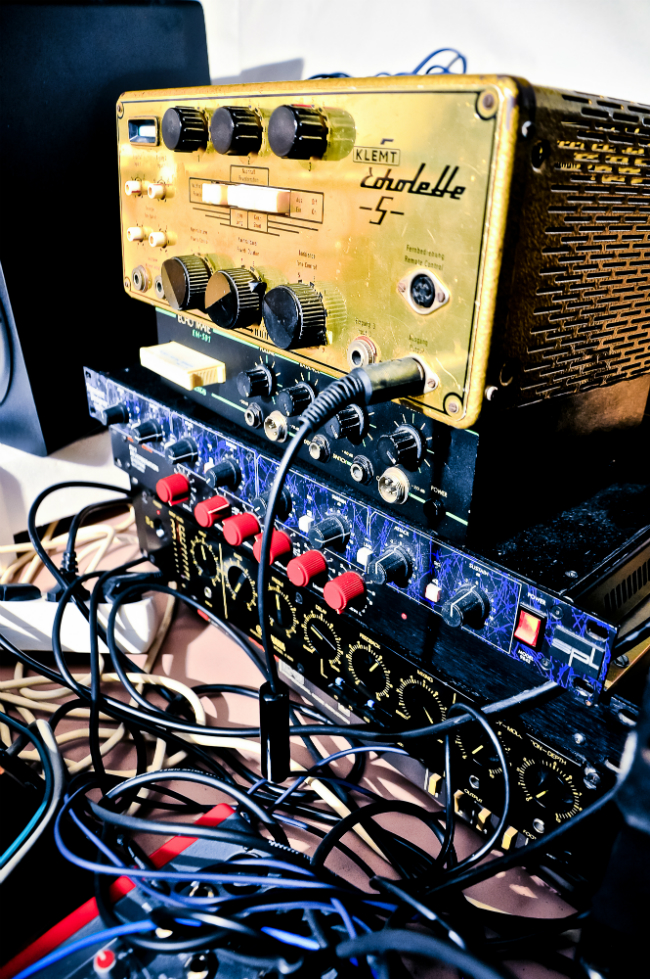 I picked up the Yamahas cause reviews told me they don't sound very pretty but produce quite an accurate image for the price. We are super happy with them. I tried mixing on a friends pair of Genlecs and couldn't pull it off everything sounded way too good!
What would you say is at the heart of the set up, that you seem to use across all your production?
Jordan: These days I would say the tube preamp on the Klempt Echollette. In the right setting it makes anything sound nicer. It has a super sweet distortion to it...
Can you run us through your synth collection and pick out your favourites and tell us why you prefer them?
Jordan: Roland Juno 60
Korg Polysix
Yamaha CS-30
Eminent Solina String
Roland D50
Yamaha DX7, DX11
Korg Poly800 II
Occasionally (very often!) we'll borrow an SH101 from a friend.
I picked up the Yamahas cause reviews told me they don't sound very pretty but produce quite an accurate image for the price. We are super happy with them. I tried mixing on a friends pair of Genlecs and couldn't pull it off everything sounded way too good!
What would you say is at the heart of the set up, that you seem to use across all your production?
Jordan: These days I would say the tube preamp on the Klempt Echollette. In the right setting it makes anything sound nicer. It has a super sweet distortion to it...
Can you run us through your synth collection and pick out your favourites and tell us why you prefer them?
Jordan: Roland Juno 60
Korg Polysix
Yamaha CS-30
Eminent Solina String
Roland D50
Yamaha DX7, DX11
Korg Poly800 II
Occasionally (very often!) we'll borrow an SH101 from a friend.
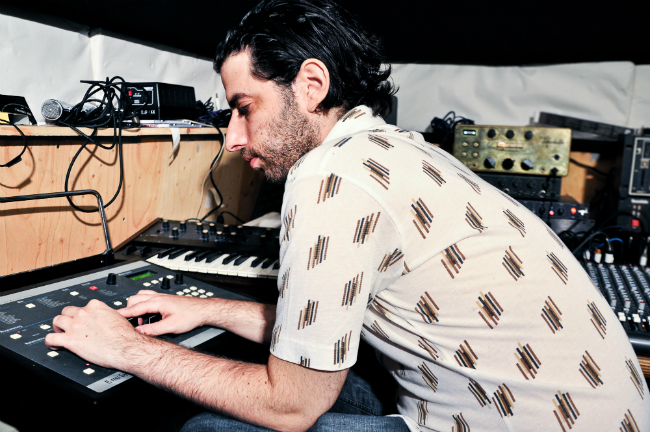
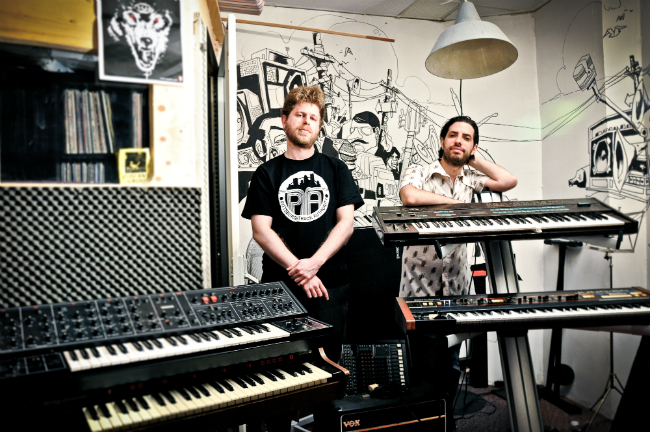 We love them all and they were were carefully chosen. I can’t wait to have enough synths to pick our favorites from!
And if money were no object what would be your ultimate purchase and addition to the set up?
Jordan: I would love to get into modular synths… so I guess a 20-30K modular system would be nice. A grand piano would be very nice too.. besides that, I want a Wurlitzer... I need a Rhodes… actually I think we need a Monopoly too and a CS80 and of course an MS20 is way, way overdue… Hey people… send us synths!
We love them all and they were were carefully chosen. I can’t wait to have enough synths to pick our favorites from!
And if money were no object what would be your ultimate purchase and addition to the set up?
Jordan: I would love to get into modular synths… so I guess a 20-30K modular system would be nice. A grand piano would be very nice too.. besides that, I want a Wurlitzer... I need a Rhodes… actually I think we need a Monopoly too and a CS80 and of course an MS20 is way, way overdue… Hey people… send us synths!
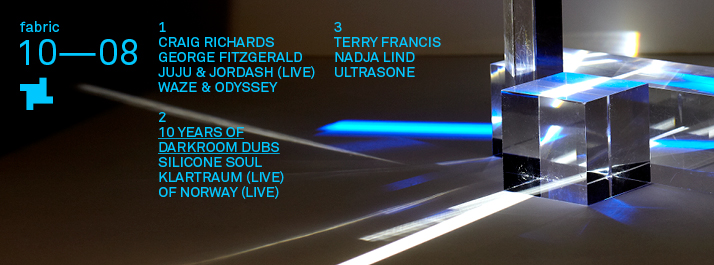
Tags
No items found.


.jpg)

